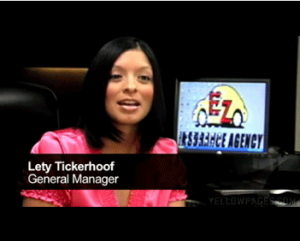There’s no doubt about it, everybody is searching for cheap auto insurance or discount insurance. Auto insurance costs are what many consumers are keen on when purchasing a vehicle, along with the kind of protection covered by that particular policy. Although every motorist is required to have insurance, burning questions about insurance policies keep popping up behind the scenes.
Here are some of the frequently asked questions surrounding auto insurance rates and their respective answers:
Why are car insurance rates higher for younger drivers?
Many people feel like insurance companies have a bias against younger drivers when determining quotes for motorists. This is not true, simply because the rates are based on data pulled from a person’s driving history. Insurance companies have decades of data at hand, which help them easily track trends and fix rates based on a driver’s driving experience.
Reports show people with less experience behind the wheel are more vulnerable to reckless driving and auto accidents. A great percentage of younger drivers belong to this group, and reports also suggest that they also lack sufficient financial history to obtain a strong insurance score. As a consequence, drivers with a low insurance score end up receiving higher quotes on their policy.
Do rates rise when a person is involved in a “not-at-fault” accident?
Nobody can tell for sure whether or not your rates would rise if you found yourself in this dilemma. Often, the outcome depends on the views of your specific state and those of your insurance provider. There are still some other factors at play, which state officials investigate within a given threshold to make an informed decision. The final verdict is what usually determines whether or not your premiums will rise, even after getting into a not-at-fault accident.
Does a person’s location affect rates?
Where you stay has a significant impact in determining insurance prices, depending on your areas population density and state policy requirements. Drivers who come from highly populated areas usually pay higher rates than those who come from less populated areas. Most cities have a high population, so drivers living in these areas pay higher quotes than those staying in a small town or rural area. The likelihood of an auto accident in the city is also very high, hence the need to subject motorists to higher quotes than those based in small populated areas.
Also, each state has minimum policy limits for vehicle insurance. The rates may vary for different states. The higher the minimum limits, the higher the insurance rates and vice versa.
Want to learn more about auto insurance? Contact EZ insurance to speak with one of our agents today.




